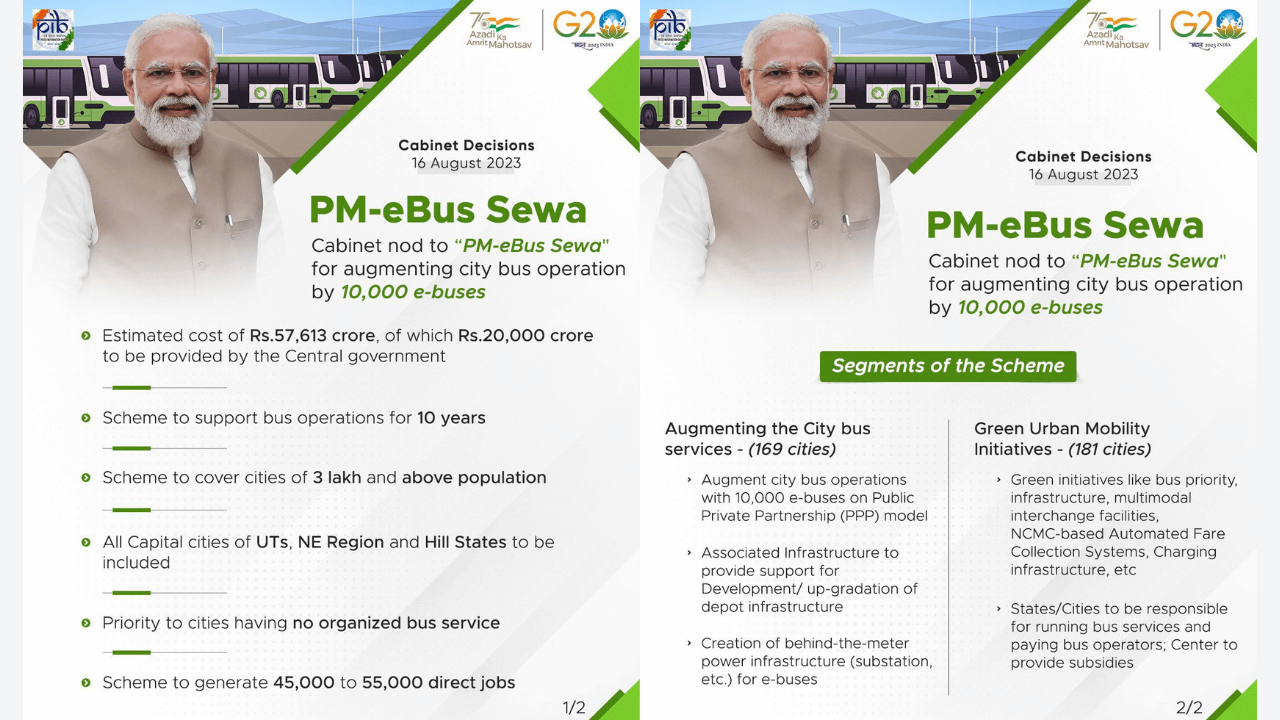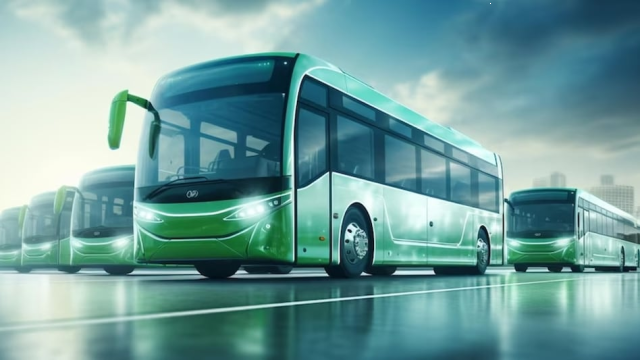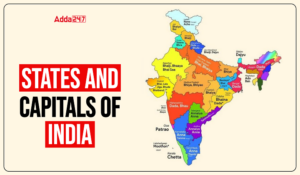In a significant move towards enhancing urban transportation and promoting electric mobility, the Union Cabinet has given its nod to the “PM-eBus Sewa” scheme. This initiative is aimed at expanding city bus operations by deploying 10,000 electric buses through a Public-Private Partnership (PPP) model.
Key Highlights:

-
Scheme Cost and Support: The PM-eBus Sewa scheme is projected to incur a total cost of Rs 57,613 crore. To facilitate its implementation, the Central government will provide financial support of Rs 20,000 crore. The scheme’s scope extends over a period of 10 years.
- Coverage Criteria: The scheme will encompass cities with a population of three lakh and above as per the 2011 census, including capital cities of Union Territories, the North Eastern Region, and Hill States. A notable emphasis will be placed on cities lacking organized bus services.
- Direct Job Creation: Implementation of the scheme is projected to result in the creation of 45,000 to 55,000 direct job opportunities. This will be accomplished through the deployment of approximately 10,000 buses for city bus operations.
- Segment A: Augmenting City Bus Services: One segment of the scheme, labeled Segment A, is dedicated to enhancing city bus services across 169 cities. This component will primarily focus on expanding the availability of electric buses for urban transportation.
- Segment B: Green Urban Mobility Initiatives (GUMI): The second segment, Segment B, targets 181 cities and revolves around green mobility initiatives. These include the implementation of bus priority measures, development of multimodal interchange facilities, integration of NCMC-based Automated Fare Collection Systems, establishment of charging infrastructure, and more.
- Operational Framework: The responsibility of operating the bus services and making payments to bus operators will rest with the respective states and cities. The Central Government’s role will involve extending subsidies as outlined in the scheme to support these operations.
- Promoting E-Mobility: The scheme places a strong emphasis on promoting electric mobility. It provides substantial support for the creation of necessary behind-the-meter power infrastructure. Additionally, cities will receive assistance for establishing charging infrastructure as part of Green Urban Mobility Initiatives.
-
Environmental Benefits: The transition to electric mobility will yield positive environmental outcomes. It will contribute to the reduction of noise and air pollution while curbing carbon emissions. A shift towards increased bus-based public transportation will result in a reduction in greenhouse gas emissions, promoting a more sustainable urban environment.







 States and Capitals - How Many States in...
States and Capitals - How Many States in...
 Top-10 Countries that Drink Most Coffee ...
Top-10 Countries that Drink Most Coffee ...
 Which is the Largest Mangrove Forest in ...
Which is the Largest Mangrove Forest in ...

